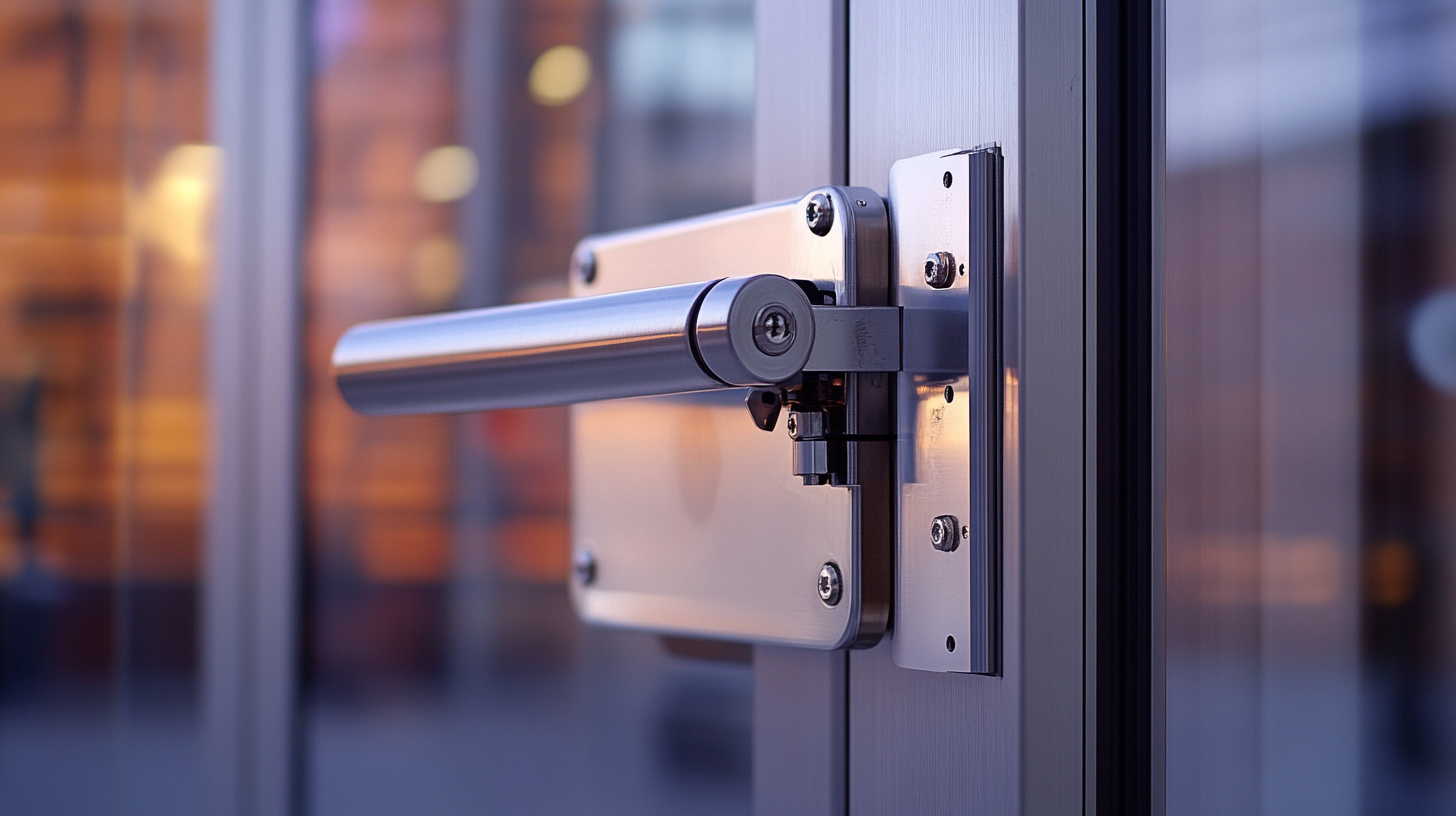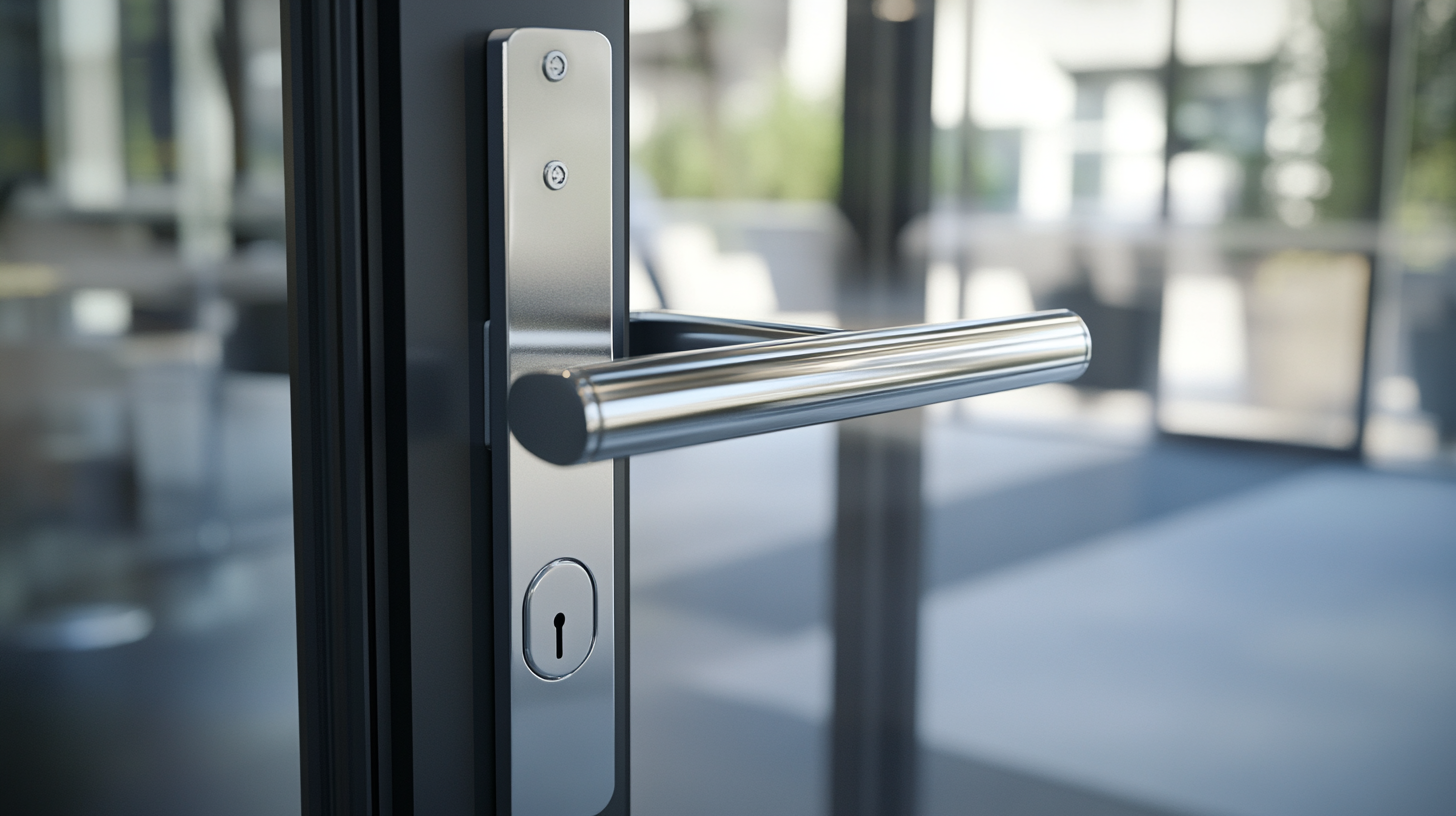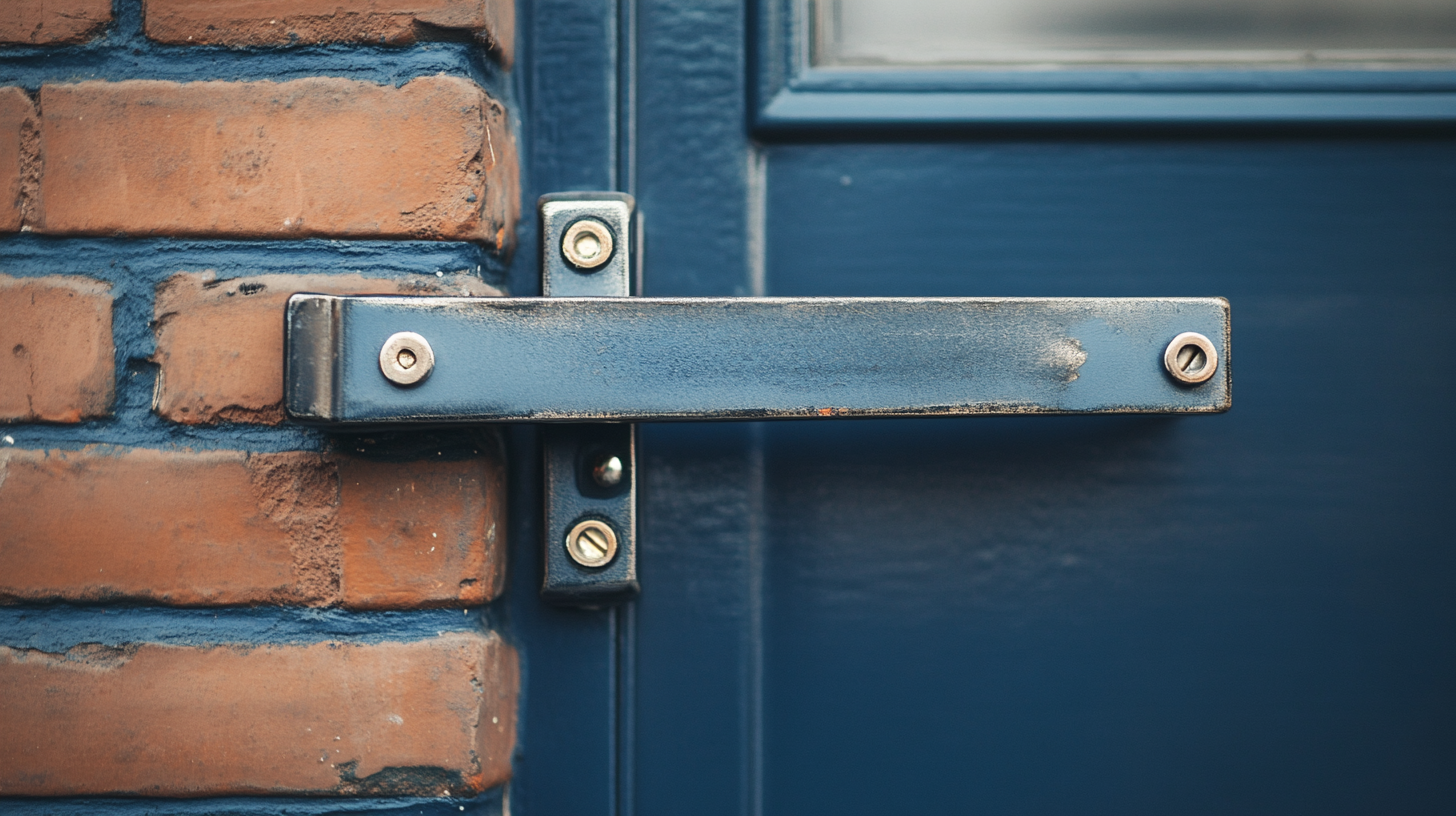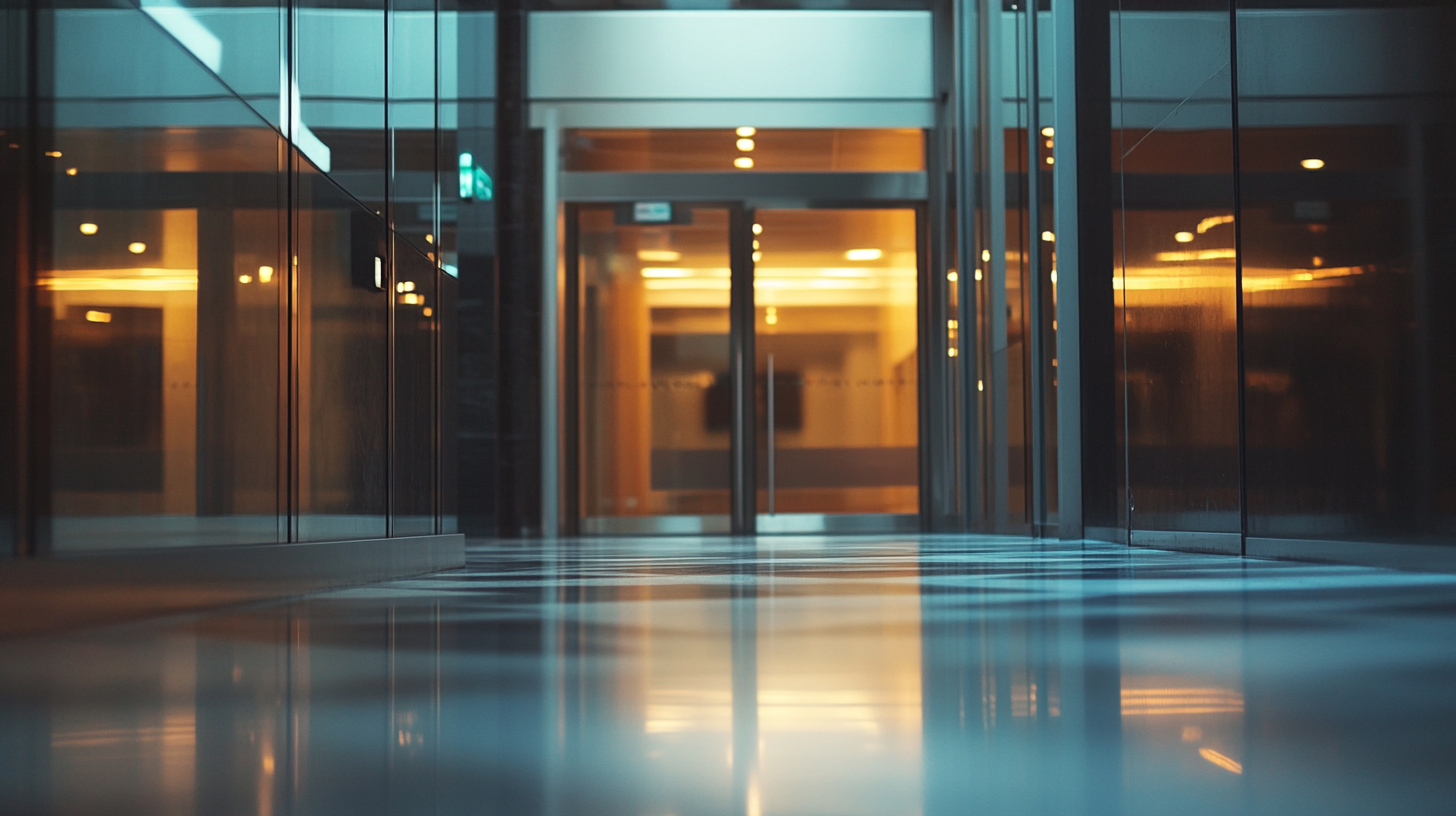
In the fast-paced world of business, the importance of a well-functioning environment cannot be overstated. One of the often-overlooked elements in this equation is the door closer. These devices may seem trivial, but they play a crucial role in the functionality, security, and accessibility of commercial spaces. Choosing the right door closer is not merely a matter of convenience; it affects the overall efficiency of operations, safety regulations, and the comfort of your employees and clients. Understanding the nuances of door closers can significantly elevate the everyday experiences within your business premises.
Navigating the multitude of door closers available on the market can be daunting, especially for business owners who may be unfamiliar with the technical specifications and features they entail. This blog aims to demystify the essential components of door closers and guide you in selecting the best option tailored to your specific business needs. Whether you operate a bustling retail store, an office building, or a warehouse, the right door closer can enhance functionality while ensuring safety and accessibility. Join us as we explore the factors to consider when choosing a door closer that fits seamlessly into your business operations.

When selecting a door closer for your business, several critical factors should be considered to ensure optimal functionality and security. The first aspect to evaluate is the type of door you have. Different doors, such as wood, metal, or glass, each have specific requirements for door closers. For instance, heavier doors necessitate robust closers with higher ratings to manage the weight and frequently ensure they close securely, while lighter doors might require more simple models that are easier to operate. Another vital consideration is the environment in which the door closer will be installed. Outdoor installations need closers that can withstand varying weather conditions, such as humidity and temperature fluctuations. Conversely, indoor applications might allow for more versatility in choice, focusing instead on aesthetics and noise reduction. Additionally, take into account the traffic flow through the door. High-traffic areas might benefit from closers with adjustable settings to accommodate frequent use and minimize wear and tear. Finally, it’s essential to look for specific features that can enhance usability and safety. For businesses, features such as delayed closing, adjustable closing speed, and hold-open mechanisms can provide convenience while improving security. By considering these factors carefully, you can select a door closer that not only meets the physical demands of the door but also enhances the overall efficiency and safety of your business environment.

Choosing the right door closer for your business is crucial, as it can greatly impact safety, accessibility, and energy efficiency. Various types of door closers are designed to cater to specific industry needs. For instance, hydraulic door closers are ideal for environments where a smooth and controlled closing action is essential, such as in healthcare facilities. Their ability to provide a consistent close ensures that doors do not slam, which is vital in hospitals where noise reduction is key to patient comfort.
In industrial settings, heavy-duty door closers are often necessary to withstand regular use and the additional wear from machinery or heavy traffic. These closers are built to handle the demands of high-traffic areas without sacrificing performance. Similarly, adjustable spring door closers offer versatility, allowing businesses to modify the closing speed and power, making them suitable for a range of applications, from educational institutions to retail shops.
For establishments focused on energy efficiency, automatic door closers equipped with sensors are increasingly popular. They facilitate hands-free operation, reducing the need for manual handling, which is particularly beneficial in restaurants and grocery stores where staff may have their hands full. Understanding the specific requirements of your industry will guide you in selecting the best door closer to enhance functionality and safety.

Door closers may seem like minor fixtures in a commercial setting, but they play a crucial role in energy efficiency and cost savings. By ensuring that doors close securely and swiftly, these devices prevent drafts and maintain the temperature inside buildings. This is particularly important for businesses that depend on climate control to provide a comfortable environment for employees and customers alike. An effective door closer minimizes the leakage of heated or cooled air, which can result in significant energy savings over time.
Moreover, the financial implications of energy efficiency extend beyond just immediate utility costs. Many businesses face escalating energy prices and seek strategies to reduce their overall energy consumption. By investing in high-quality door closers, companies can effectively lower their energy bills while also enhancing their sustainability efforts. This investment not only improves operational efficiency but also contributes to a company’s reputation as an environmentally conscious entity, appealing to today’s eco-minded consumers.
Additionally, modern door closers are designed to be more than just functional; they can also enhance the aesthetic appeal of commercial spaces. With a variety of styles and finishes available, businesses can choose door closers that complement their interior design while maintaining high performance. This combination of functionality and style makes them a worthwhile investment for any business looking to reduce costs and improve energy efficiency without compromising on appearance.

When selecting the right door closer for your business, it's crucial to consider safety regulations and compliance standards. According to a report by the American National Standards Institute (ANSI), door closers must meet specific guidelines to ensure they function correctly under various circumstances, particularly for emergency exits. Compliance with these standards not only ensures safety but also protects businesses from potential liabilities.
The National Fire Protection Association (NFPA) stresses the importance of door closers in maintaining building safety during emergencies. For instance, doors equipped with automatic closers can help contain fires, allowing more time for occupants to evacuate. Data indicates that nearly 80% of fire-related fatalities occur in buildings without appropriate fire safety measures in place, highlighting the significance of compliant door hardware.
Furthermore, the Accessibility Guidelines set forth by the U.S. Access Board specify that door closers must be adjustable to ensure accessibility for individuals with disabilities. A well-documented study from the American Institute of Architects shows that businesses adhering to these guidelines not only comply with legal requirements but also enhance overall customer satisfaction and staff productivity.
Businesses should thoroughly evaluate door closer options to meet both safety and compliance requirements. Selecting the right hardware can significantly reduce risks associated with safety violations while fostering a secure environment for employees and customers alike. Ensuring that door closers are correctly installed and maintained is not just a regulatory obligation but a commitment to workplace safety.
The importance of accessibility in business environments cannot be overstated, particularly when considering the impact of door closers on customer experience. According to the U.S. Department of Justice, nearly one in five Americans has a disability, which highlights the need for businesses to prioritize accessibility in their design and operations. A well-selected door closer can not only enhance the ease of entry for all customers but also create a welcoming atmosphere that encourages foot traffic.
Modern door closers are designed with advanced features that cater to accessibility standards outlined by the Americans with Disabilities Act (ADA). For instance, adjustable closing speed and latching action can accommodate the needs of individuals with mobility challenges. A study by the World Health Organization indicates that improving accessibility can lead to a 20% increase in customer satisfaction, demonstrating the direct correlation between ease of access and business success.
Furthermore, businesses that invest in quality door closers often see a return on investment through increased customer loyalty. According to a report by the Research Institute for Accessibility and Universal Design, establishments that enhance their accessibility features experience up to a 30% increase in repeat customers. This underscores the idea that the correct door closer is not merely a functional element but a strategic investment in improving customer experience and expanding customer bases.

